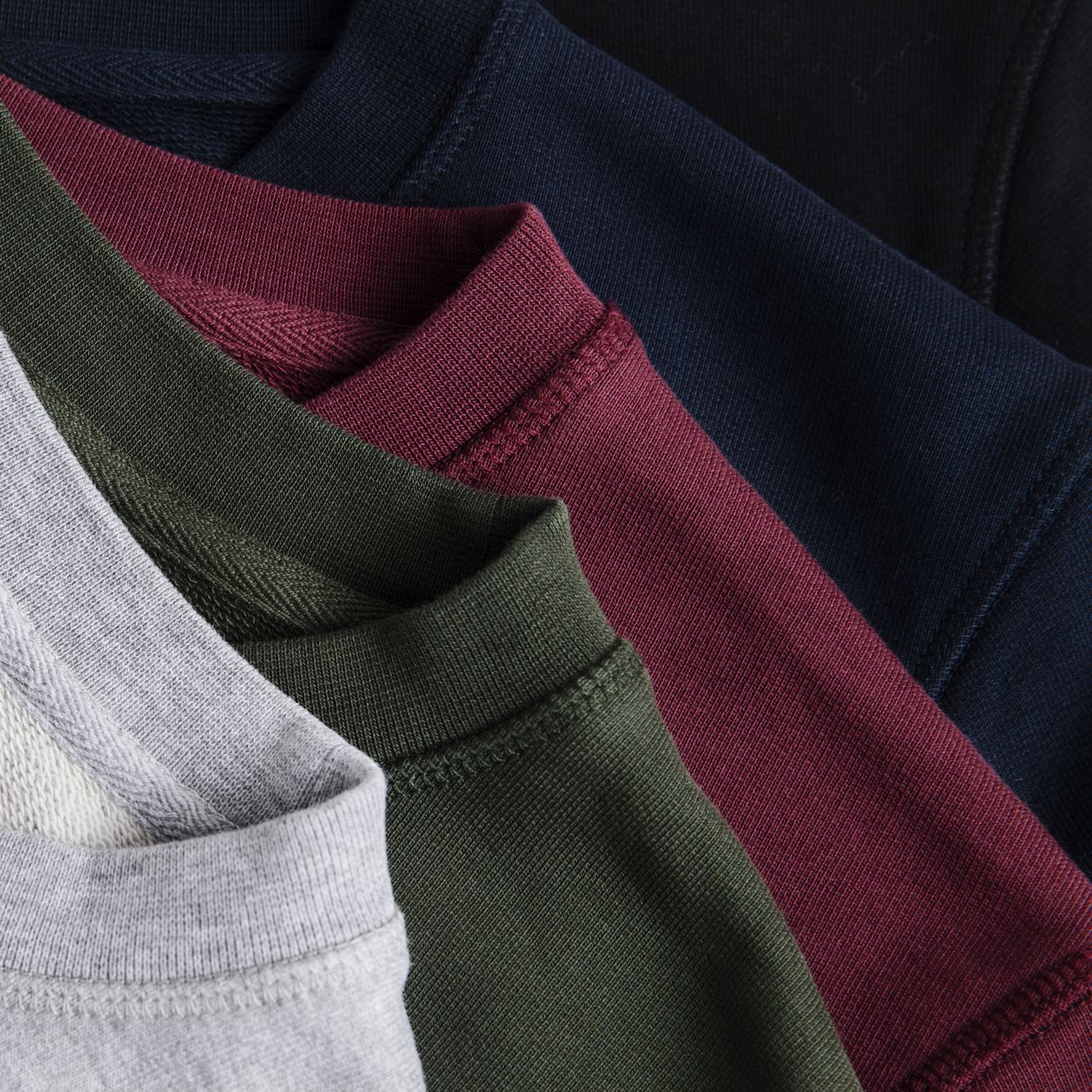

The Sweatshirt That Nearly Ruined Us
A reflection piece from the early days of Asket
First introduced in the 1920s to replace the itchy wool sweaters worn by American football players, the sweatshirt became an essential thanks to its unique combination of comfort, durability and versatility. But just like so many of our wardrobe essentials, it didn’t quite become a staple all by itself - it was propelled from pure function to desirable form by way of an icon: Steve McQueen.
To understand the role The Sweatshirt plays for us at ASKET we need to rewind to 2015 - the year we launched. Even before launching The T-Shirt we had decided that The Sweatshirt would become our second ever product. Just like the tee, it’s a knitted long staple cotton piece with a special place in most of our wardrobes and like all wardrobe essentials out there at the time it was suffering from terribly bad supply. Us customers had to choose between the lesser of two evils: Overpriced brand pieces, costing north of 200 EUR or fast fashion pieces of dubious origin and terrible quality. So we couldn’t wait to develop our take on it, free The Sweatshirt from fashion and bring it back to basics. We spent months developing a custom quality with our Portuguese textile engineers: 380g/sqm heavyweight loopback, knitted from long staple Egyptian cotton with a natural, undied inside. A beautiful knit. Young and inexperienced, we were so eager to get it out to our little family of first customers that we didn’t pay enough attention to its one drawback: the weight and the openness of the loopback knit made the fabric tremendously elastic and unpredictable. As a result we weren’t quite able to nail the fit and continued to tweak and change the it until the very last moment - the last changes were taken right into production - we didn’t get any final prototypes made to see how the changes actually came out. Something we would never do today.

A few weeks later, in January 2016, we were notified that the shipment had passed our quality control in Portugal and shortly thereafter it arrived at our office in Stockholm. We were so eager that we just counted them, put them into stock and launched - without a final control (again, something we’d never do today).
After a few days we started getting odd reports from customers about sleeves being disproportionately short, bodies being way too long, bottom hems being too wide. Finally, we started controlling what we had received: 10 sweatshirt, 20 sweatshirts, 100 sweatshirts - eventually we measured all 600+ garments we still had in stock by hand. It took two weeks. The result: The majority had measurement deviations classified as serious defects. Turns out our final changes had been rushed by the factory, at great expense of the precision of the measurements and our local controllers somehow hadn’t spotted the apparent issues. We had to inform every single customer and recall any potentially defect garments and ship them back to Portugal to try and fix what could be fixed. Eventually we had to cancel the product entirely. At that time we were a two-person operation, with no salaries, no funding whatsoever and we had lost just everything we had saved up from our first months of T-Shirt sales. Not a great comeback from our T-Shirt launch.
Eventually we managed to salvage some of the sweatshirts and recover some of the losses. At that point we said we’d never rush anything, ever again. Good things take time has since become a core belief at ASKET. We started over, from scratch, and decided to launch a mini-production of only 150 pieces. Sold as a “pre release”, we would require our supporters to provide feedback on the garments and only once we knew that not only we - but also you - were 100% satisfied would we ramp up for a full production. Turns out that was the best thing we could have done. During the pre-release our site crashed from the amount of demand. We sold out in 45 minutes and got a tremendous amount of engagement and feedback. Eventually we ramped up production fully and launched The Sweatshirt in full, breaking all records again. We were so pleased with our new approach of taking things slowly, continuously tweaking our garments with your support and feedback (just like software) that we decided to institutionalise it: Garments as software. To this day, it’s one of the fundamentals garment development at ASKET.